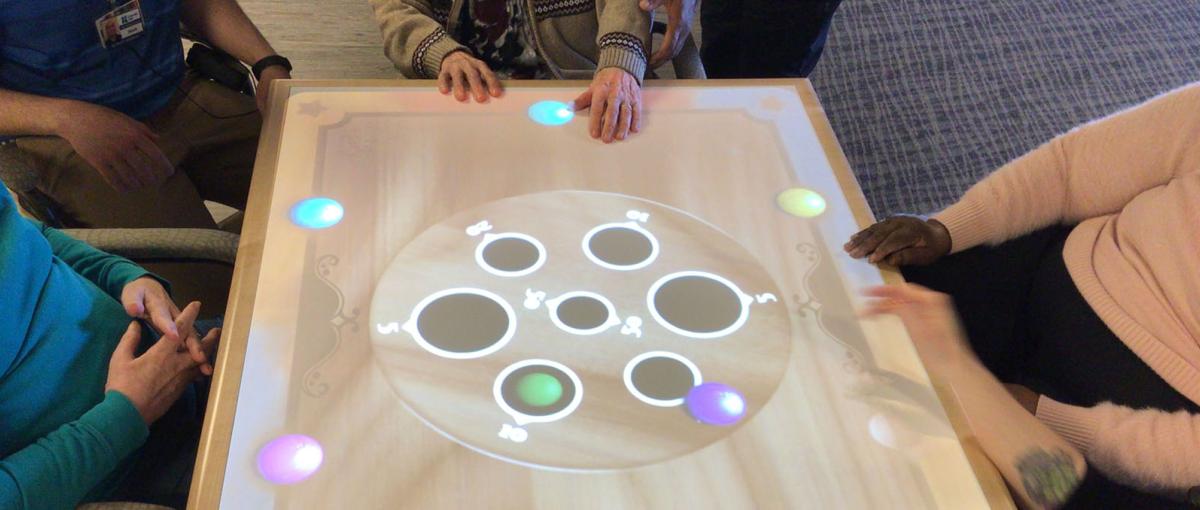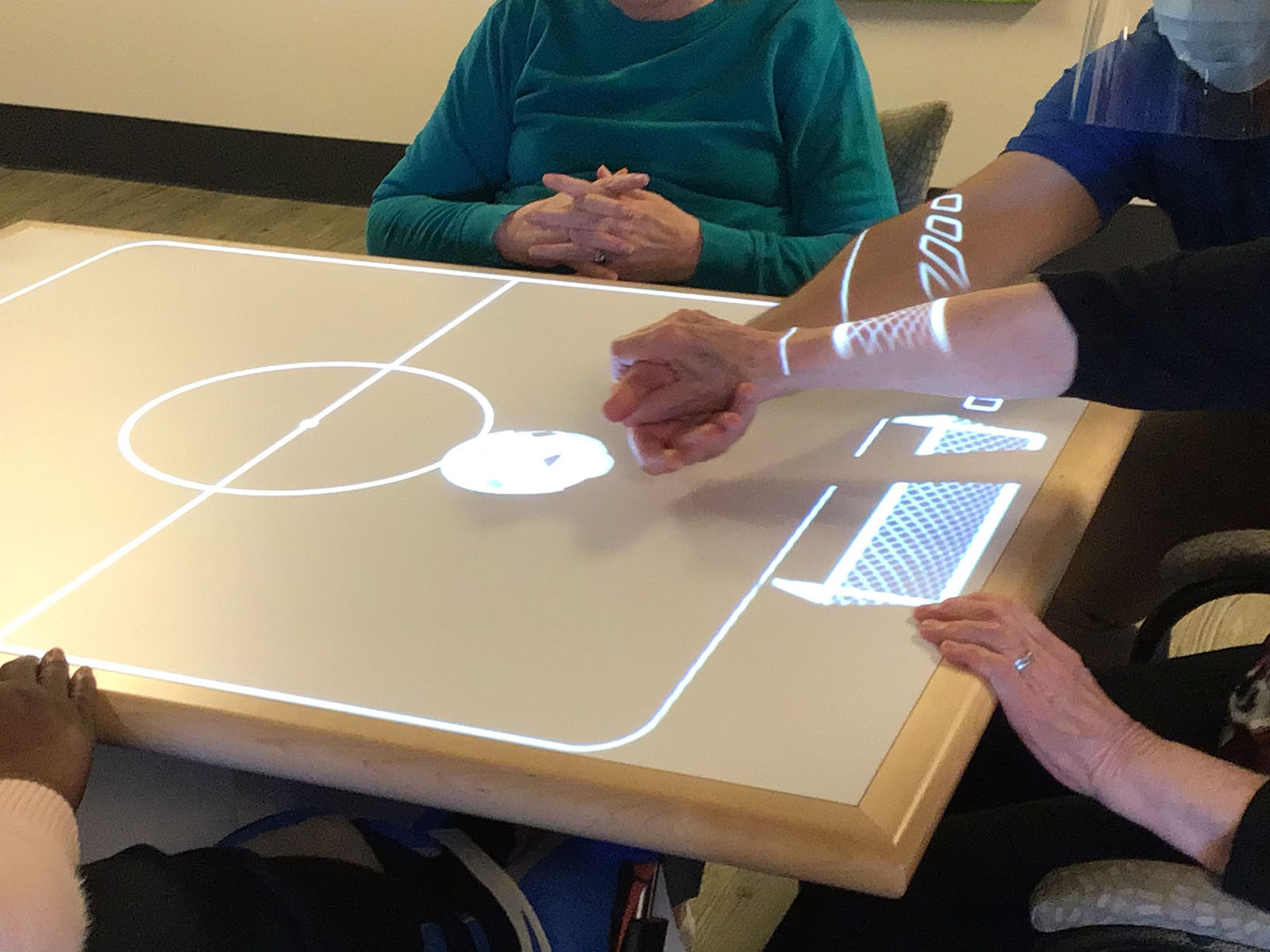Gaming system for those with dementia
Early results show positive benefits for residents at two Covenant Care sites

April 29, 2021
By Rosemary Malowany, Corporate Lead, Misericordia, Covenant Health
Residents in two Covenant Care communities are enjoying an opportunity to play with a high-tech gaming system.
This isn’t the latest PlayStation. It’s Tovertafel, an innovative system from the Netherlands specifically designed for people in the mid-to-late stages of dementia.
And it’s a hit. Residents and staff have all benefitted from the entertainment, connection and play provided by Tovertafel.
“We’ve been really impressed with residents’ engagement with Tovertafel so far,” says Jo Ann Molloy, vice president, resident experience at Covenant Care. “It’s been easy for the sites to implement, and the results were quickly noticeable.”
Jo Ann, along with Rosa Rudelich, chief operating officer for Covenant Health, was first introduced to the gaming system during a tour of the Netherlands’ world-famous seniors' health and dementia care delivery system.
What excited Covenant staff about the gaming system was how it catered specifically to dementia care. It allowed seniors to interact in cognitive and social ways that weren’t intimidating, complicated or confusing.
Tabitha Grady, IT manager for Covenant Care and Covenant Living, has been instrumental in arranging to pilot the system. The pilot started in January, at no cost to Covenant Care, and the gaming system is currently being used at two locations: Villa Marie in Red Deer and St. Teresa Place in Calgary.
“As it stands, we are the only organization in Canada that is using this device with our seniors,” she says.
Tovertafel, which means “magic table,” was launched in 2015 by Active Cues, a company founded by PhD researcher Hester Anderiesen, who’d been studying how to keep people in the mid-to-late stages of dementia active and reduce apathy.
The console contains infrared sensors, a loudspeaker, a processor and a high-quality projector to project interactive games onto a table.
There are a multitude of games to choose from — from puzzles and whack-a-mole to brushing away leaves, popping bubbles, gardening and playing soccer — and they feature a variety of levels to support the different functioning capabilities of players.
While connecting with residents with dementia can be difficult, playing a game together can be easier — and more fun.
At Villa Marie, staff have seen Tovertafel trigger memories in their residents.
“The use of not only visual stimulation but auditory as well makes it a sensory delight for residents,” says Kathleen O’Connor, recreation therapist at Villa Marie. “It will often spark memories and stories as they play. For example, the music box game with the ballerina brought back stories from a woman’s youth, when her mother bought her a jewelry box just like it. She reminisced about how she used to wind it and listen to the music play while the ballerina spun. It made her wish she was a ballerina too.”
Stephanie Rodgers, recreation therapist at St. Teresa Place, has also seen the positive effects of the gaming system. “We have one resident who is legally blind, can see with peripheral vision only, and they were fully engaged and faster than everyone at whack-a-mole. We also have another resident who was not actively engaging in the games, but when we put on a music game, they started to sing along to the song that was playing.”
According to both recreation therapists, Tovertafel has strengthened their suite of tools for supporting residents. It has also prompted meaningful interaction between residents. Even residents without dementia enjoy playing with the gaming system.

“Tovertafel has helped to decrease some of the behaviours associated with dementia, such as wandering and agitation. It has also fostered socialization because residents can join together to participate in an activity at their leisure. There are also therapeutic benefits, since the games target physical, cognitive, social and emotional well-being,” says Stephanie.
“It’s very interesting to see how the residents with dementia interact with the virtual games,” says Kathleen. “They become so focused and amazed at the different reactions their movements cause. It also creates a calmness in the room, relaxation if you will. The residents smile and laugh while they play the different games. It brings a joy to the room.”
Staff have also enjoyed participating in game times. The laughter and escape have provided some relief during the pandemic.
The piloting of Tovertafel continues until June. Staff are gathering information such as engagement levels, memory responses and emotional responses to the games. Since the benefits to residents have been significant so far, Covenant Care is hoping to bring Tovertafel to all its sites.
“It’s a wonderful system,” says Kathleen. “It provides joy to residents..”